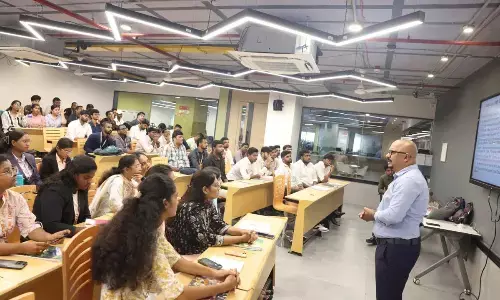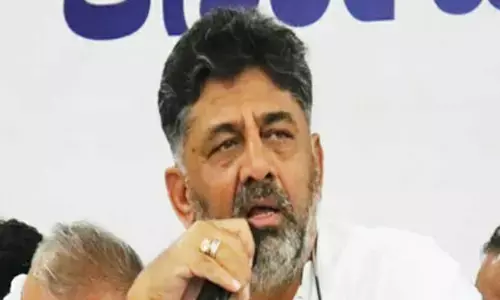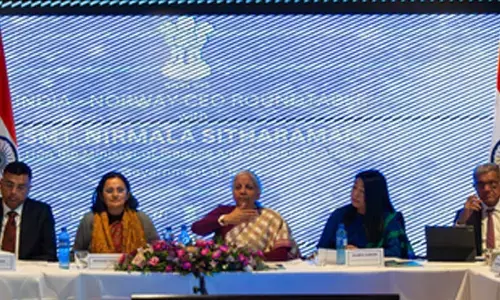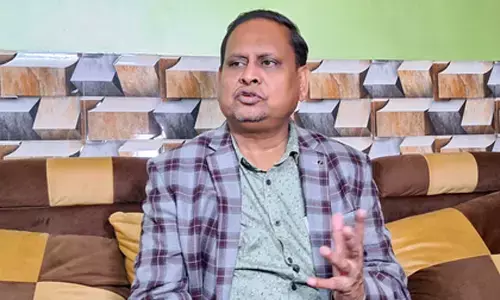Transforming Enterprises across Industry Verticals with Advanced Multi-Cloud Strategies and DevOps Solutions

Multi-cloud strategies and the integration of advanced technologies like AI, DevOps, and cyber-security are driving innovation across industries.
Bengaluru : Multi-cloud strategies and the integration of advanced technologies like AI, DevOps, and cyber-security are driving innovation across industries. From streamlining supply chains to enhancing security in cloud-native platforms, experts in these fields are spearheading transformative projects that improve business operations, enhance efficiency, and protect sensitive data.
One such figure leading these innovations, Ramakrishna Manchana, has managed multi-cloud deployments, security automation, and system modernization across a range of industries, including manufacturing, healthcare, retail, and logistics. His expertise in multi-cloud environments, spanning AWS, Azure, GCP, and Oracle Cloud, has enabled organizations to leverage the distinct strengths of these platforms, ultimately avoiding vendor lock-in and ensuring scalability. His approach to multi-cloud strategy development has been instrumental in transforming the way businesses operate, ensuring that they remain agile and competitive in a rapidly changing market.
As he mentioned, “The successful deployment of a global Software-as-a-Service (SaaS) platform across multiple cloud environments” is an achievement for him. Managing a SaaS product on this scale, especially across platforms like AWS, Azure, and GCP, required meticulous planning to ensure consistent performance and availability. The initiative expanded the SaaS platform’s global reach by enhancing service availability by 15% and enabling the organization to enter new markets.
In addition to deployment strategies, security remains a critical component of cloud operations. He led the automation of security processes across a multi-cloud infrastructure, embedding security within the Continuous Integration/Continuous Delivery (CI/CD) pipeline. Automated vulnerability scanning, compliance checks, and incident response mechanisms were implemented using tools such as AWS GuardDuty and Azure Security Center. Reportedly, “This forward-thinking approach resulted in a 25% increase in operational efficiency and reduced potential financial losses due to breaches by 30%, demonstrating the power of integrated security automation,” Manchana stated.
The rise of electric vehicles (EVs) has opened new avenues for cloud and Internet of Things (IoT) technologies. In this domain, he developed a cloud-connected platform for a major EV manufacturer, hosted on AWS. By integrating vehicle and charger data, this platform provided real-time analytics for stakeholders, improving operational efficiency and reducing costs. The deployment of advanced DevOps and multi-cloud strategies ensured the platform’s reliability, giving stakeholders the tools they needed to manage systems seamlessly.
In the area of supply chain management, he oversaw a project that integrated a logistics network across multiple cloud platforms. Real-time data processing and analytics optimized supply chain operations for a major manufacturing company, leading to a 30% reduction in lead times and improved delivery accuracy. This initiative demonstrated the value of multi-cloud strategies in streamlining logistics and supply chain operations, which are crucial to the success of global businesses.
According to him, the modernization of the retail management systems project, it improved system scalability by 35%, enhancing the overall customer experience and driving growth within the retail sector.
Cyber-security, too, has been a focal point of his work. Leading the development of a proactive cyber-security framework for a cloud-native SaaS platform, he embedded security practices throughout the development lifecycle, from design to deployment. By focusing on DevSecOps methodologies, the framework reduced security incidents by 40% and improved the overall security posture of the platform. This not only enhanced customer trust but also ensured compliance with industry standards, a critical requirement in sectors like healthcare and finance.
In the healthcare industry, he also led the implementation of data lakehouse architecture, enabling seamless integration and analytics across multiple data sources. This project underlined the importance of modernizing healthcare systems to cope with the growing demand for data-driven healthcare solutions.
The development of a collaborative platform for real estate and investment banking sectors showcased his ability to manage cross-industry projects. By integrating data from both sectors, the platform allowed for seamless data sharing and improved decision-making, optimizing real estate asset management and investment outcomes.
Moreover, another example of his forward-thinking approach to system reliability was seen in the deployment of resiliency strategies for cloud-native environments. These strategies, implemented across sectors like logistics and insurance, ensured that critical applications had high availability and disaster recovery plans in place. This reduced downtime by 20%, improving business continuity and minimizing the financial impact of potential service disruptions.
Opining on the near future, Manchana explains, “The shift from reactive to proactive strategies is essential for organizations that want to stay ahead of the curve. This shift is not just about implementing the latest technologies; it's about changing the mindset and culture of the organization. Proactive strategies involve anticipating challenges, leveraging data-driven insights, and continuously optimizing processes”.
Manchana’s work has been crucial not only in driving technical innovation but also in fostering collaboration between development, operations, and security teams. By promoting a culture of integration and shared goals, his initiatives have enhanced operational efficiency and system performance, aligning IT operations with broader business objectives. Through his leadership, organizations have seen tangible improvements in scalability, security, and cost optimization, driving long-term growth and success across diverse industries.
In a world increasingly reliant on cloud technologies, Ramakrishna Manchana’s achievements serve as a blueprint for organizations looking to navigate the complexities of multi-cloud environments, cyber-security, and digital transformation. His expertise ensures that businesses can remain resilient and secure in an era of rapid technological advancement.









